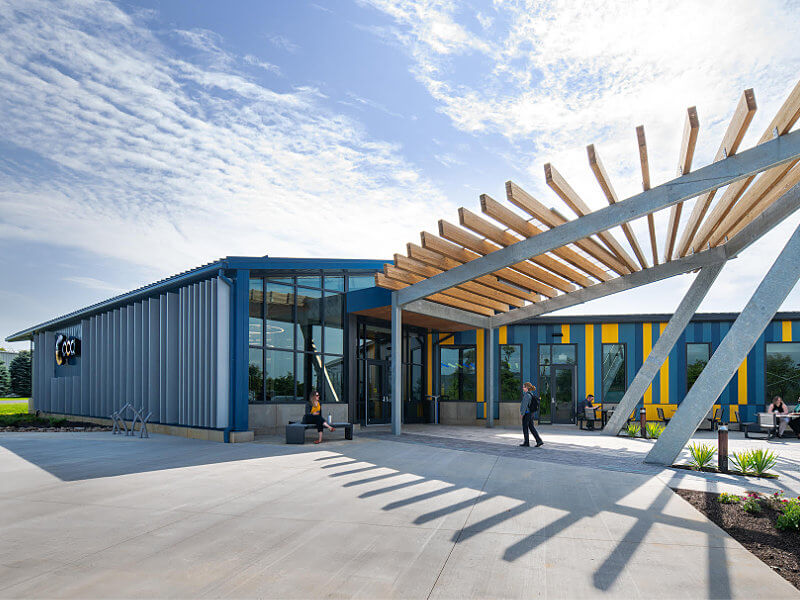Tony Kozak shares his thoughts on stepping into the Controller position, supporting our project and operations teams, and a few personal insights as well.
We’re excited to welcome Tony Kozak to the Shannon Construction team. Tony brings a diverse background, a passion for operational accounting, and a leadership style rooted in communication and continuous improvement. Here’s a quick introduction as he steps into this key role.
Q: Can you tell us a little about your professional background and how you got started in accounting and finance?
A: I actually started out as a psychology major, but an organizational behavior course sparked my interest in business and accounting. With some guidance from my advisor, I decided to pursue that direction and concluded my education through obtaining my MBA. While I was building a career in banking and finance, I was offered the opportunity to join the lead team at Alcoa, where I helped consolidate their North American accounting operations in Pittsburgh. That experience really solidified my path in the field.
Q: What industries have you worked in prior to joining Shannon Construction?
A: I’ve worked in municipal finance, banking, manufacturing, and retail, including owner-related construction experience. For the last eight years, I’ve been with family-owned general contractors and subcontractors.
Q: What attracted you to this opportunity with Shannon?
A: Shannon’s strong industry reputation, and the genuine family-business atmosphere. During the hiring process, the company’s thoughtful succession planning really stood out and showed a long-term commitment to its people. I also hadn’t had the chance to work in a union environment, and that was something I found interesting as well.
Q: What are some of the most valuable lessons you’ve learned in your career so far?
A: I’ve learned the importance of having strong mentors. I’ve also found that taking on the jobs no one else wants can lead to the best opportunities for improving processes. And honestly, I’ve discovered that I tend to like being uncomfortable – it keeps me learning and growing. Lifelong learning and new challenges have always been important to me.
Role & Responsibilities
Q: As the new Controller, what will your main priorities be in your first few months?
A: My priority is to learn Shannon’s processes, systems, and culture. I want to understand the current state of our financial controls and identify efficiencies that will support long-term growth.
Q: You’ll be taking over for Angela, who has been a key part of the company. How are you approaching this transition?
A: I’m approaching it with a lot of respect for the work Angela has done. My goal is to listen, learn from her experience, and ensure a smooth and thoughtful transition.
Q: What aspects of financial management or reporting are you most passionate about improving or streamlining?
A: Operational accounting is where all the details live, and I enjoy digging into that. Focusing on improving processes in these areas allows us to provide timely, accurate information for leadership and strategic decisions.
Q: How do you see your role supporting the project management and operations teams?
A: My role is to make sure project management and operations have clear, reliable financial information at their fingertips so we can work together efficiently and stay ahead of potential issues.
Leadership & Vision
Q: How would you describe your leadership or management style?
A: I tend to approach leadership like coaching. Accountability and communication are at the center of everything. I believe in creating an environment where we can challenge one another constructively.
Q: What’s your approach to fostering collaboration between accounting, operations, and project teams?
A: For me, it starts with open communication and ensuring everyone understands how our roles connect. When teams share information freely, we solve problems more efficiently and make better decisions.
Q: Are there any financial or process innovations you hope to implement in the next year?
A: Right now, I’m focused on observing and understanding the current systems. I like to use the balance sheet as a checklist to identify where improvements can be made. Shannon already has well-thought-out processes, so I want to make sure I prioritize the right areas.
Q: What metrics or goals are you most focused on to measure success?
A: Consistency, accuracy, and the usefulness of the information we provide. When accounting becomes a dependable and insightful resource, the entire organization benefits.
Personal Insights
Q: How do you like to spend your time outside of work?
A: My wife and I have four kids and two dogs which keeps us busy. I also play hockey which is my favorite stress reliever. I’ve been playing with many of the same guys since 2009, and the sense of community and camaraderie is something I really value. I also coach my son’s hockey, which keeps me grounded and connected to my family.
Q: Do you have a personal motto or piece of advice that guides your work?
A: Don’t have your cake before the party. To me, that means embracing delayed gratification – planning ahead saves a lot of time and headaches down the road.
Q: What are you most looking forward to in joining the Shannon team?
A: I’m excited to be part of a strong, collaborative team and contribute to Shannon’s continued growth.
Closing Thoughts
Q: Any words of appreciation for Angela as she transitions into retirement?
A: I truly appreciate the extra effort she’s put in to help me get off on the right foot. I wish her all the best in this next chapter of her life.
I’d also like to say thank you to the accounting team for walking me through their processes during a busy time – “year end!”











